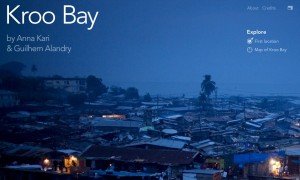What happens when you are employed by an NGO?
Written by duckrabbitThis shows the risks to objective storytelling if one is employed by an NGO.
You are corporatised into showing the message of your employer – bottom line.
Agencies are self interested collectives serving photographers, NGO’s are lovely intentioned organisations with a specific marketing team brief to bring in donations to do their good deeds, established photographers are just looking for a living surviving and protecting the careers they built up.
[youtube width=”500″ height=”405″]http://www.youtube.com/watch?v=OTSQozWP-rM&feature=player_embedded[/youtube]
But as this video highlights, inevitably if one scares – you get a reaction but is it true?
Consider this:-
Although China is the biggest single foreign debt holder in the US, Non-American investors, including foreign governments, purchase an average of only 12.5% of U.S. Treasury securities.
How about stories of Africa… Paulo Woods aside, who has looked at China’s investment?
Actually, who has looked at China giving $13 billion in loans to Ghana to be used in part for Ghana’s oil and gas, and agricultural sectors, and for infrastructure building. Also the controversial $9 billion agreement China made with the conflict-ridden Democratic Republic of Congo—a deal that would exchange infrastructure for minerals.
They are also real stories in a continent that has struggles but is actually forecast to grow at 5% this year, up from an earlier prediction of 4.5% and predicted to rise to 5.5% next year.
Is the lack of a market, of real journalism and a different platform really serving those lovely people in NGO’s still hiring PJ’ists?
Have the PJ’ist lobby really succeeded so well as to crowd out opportunities for other talent, kept income to themselves without investing in innovation and evolution?
Sounds like a dependency culture, acts like a vested interest, protects its own despite the obvious troubles? Sounds like an out of date caricature of corrupt African politics arisen because of the unintended consequences of badly administered Aid?
Is this the industry PJ’ists have? Please tell me no… because you can produce great work such as this:-


Discussion (7 Comments)
This is a video? Not photography, right?
And what is the ‘risk to objective storytelling’ of being hired by an NGO? It seems like a odd thing to write because no-one is expecting the NGO to hire a photographer for ‘objective storytelling’, whatever that is. They are not the BBC.
This is a campaigning video. It’s totally different to journalism and honestly, I may be missing something but I just don’t understand your post?
Yep – but let me clarify.
Online campaigns are by definition corporate messages – video or photo. Admit using a video led to confusion.
“Paid for” messages will skew and sensationalise the problem to get a response – be it Malnutrition in Africa, debt and spending cycles in America. The sensationalise the risks to get a response.
You say that “no-one is expecting the NGO to hire a photographer for ‘objective storytelling’, whatever that is. They are not the BBC.” but that is precisely what I think people are expecting particularly when the name of the photographer is used to front the work. I will stand corrected if this is not the case and apologise.
I make this clear: NGO’s hiring the best photographers they can to tell the stories they need to is super important and a great way of getting the message out. Using online forms – photofilms and multimedia is also critically important because still images work differently and are more flexible in their distributive potential (online, posters, editorials, posters, etc, etc).
But with the reduction in editorial income, the risk is that all that is left are NGO’s and photojournalists without the journalism.
That has implications for the integrity of the medium and I should have made that catalyst for debate clearer for the blog audience.
‘But with the reduction in editorial income, the risk is that all that is left are NGO’s and photojournalists without the journalism.’
Now thats a good point.
After having spend a couple of days in the UK and reading the local newspaper I think it’s safe to say that they are filled with “paid for” messages
Quite. Lets all get over this term ‘journalism’. Please. People don’t really give a toss, because actually the public has very little trust in journalism. With good reason.
And the truth is people in NGO’s often care a lot more about the stories of the people they are helping then the journalists who parachute in and out.
“…the public has very little trust in journalism. With good reason” – I think that they do. I think it is critical and if we lose that trust, we get Fox news. I prefer to fight for the right of journalism to exist.
“NGO’s often care a lot more about the stories of the people they are helping then the journalists who parachute in and out.” – I completely agree!